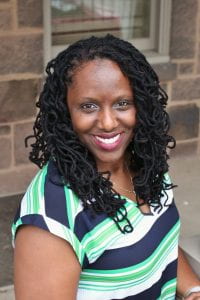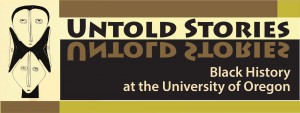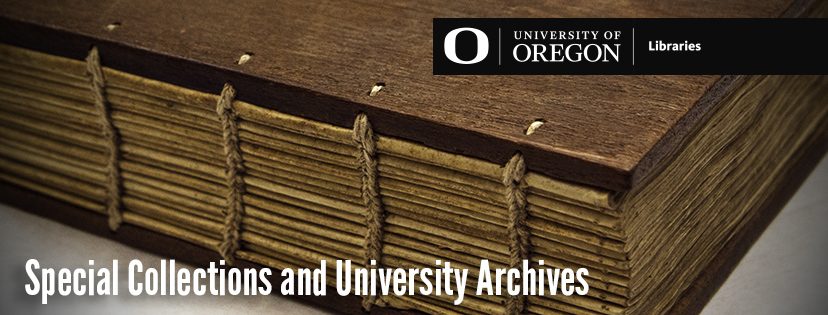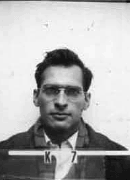RESCHEDULED – FEBRUARY 28TH (details below)
Join us for an upcoming guest presentation:
Underground Tunnels Revealed: Unearthing the History of Black Deaf Education
by Dr. Lissa D. Stapleton
Knight Library, Browsing Room,
Friday, February 28th, 9am-10:30am
Black History Month is usually a time to explore, remember and celebrate the journey and lives of Black Americans. However, during this month, only certain Black Americans and stories are highlighted. This presentation will explore untold stories of Black history – Black Deaf Americans. The Deaf experience is often mistaken as a White experience and the Black experience is often only understood as a hearing experience. However, both are untrue. This interactive presentation will challenge the historical invisibility of Black Deaf communities with a specific focus on education. There is a past of racism and audism particularly within Black Deaf educational systems. However, there has been a complicated relationship of oppression, resistance, and collaboration among Black hearing and Deaf people. The research that guides this presentation looks at the historical relationship between Historically Black Colleges and Universities (HBCU) and Black Deaf education in the 1860s-1930s. Dr. Stapleton will focus on two HBCU institutions, Southern University A & M in Louisiana and Hampton University in Virginia. Black Deaf educational challenges have yet to be resolved. However, to understand current educational experiences, it is important to consider the historical happenings in which the present is based and what can learn from the past.
 Dr. Lissa D. Stapleton is an assistant professor at California State University Northridge in the Department of Deaf Studies and core faculty for the Educational Leadership and Policy Studies program. Her research focuses on equity and access, identity development, and the educational history of Deaf students, faculty, and staff with a particular interest in the intersections of race, gender, and disability. Her desire to support Deaf college students of color, led Stapleton to pursue her doctorate at Iowa State University. She graduated in 2014 with her PhD in education with an emphasis in higher education and social justice and a minor in women’s studies. She won the 2015 Melvene D. Hardee NASPA Dissertation of the Year award, and is a 2018 Ford Postdoctoral Fellow and Penn Center for Minority Serving Institution Elevate Fellow. Previously, Stapleton worked in student affairs at various institutions and with Semester at Sea. She is involved with the Association for the Study of Higher Education and the National Black Deaf Advocates. She earned her MSE in college student personnel from the University of Dayton and BS in social work from Wright State University. Stapleton was born and raised in Columbus, Ohio, is a proud first generation college student, and loves dancing and having a good meal with lots of laughter with friends and family.
Dr. Lissa D. Stapleton is an assistant professor at California State University Northridge in the Department of Deaf Studies and core faculty for the Educational Leadership and Policy Studies program. Her research focuses on equity and access, identity development, and the educational history of Deaf students, faculty, and staff with a particular interest in the intersections of race, gender, and disability. Her desire to support Deaf college students of color, led Stapleton to pursue her doctorate at Iowa State University. She graduated in 2014 with her PhD in education with an emphasis in higher education and social justice and a minor in women’s studies. She won the 2015 Melvene D. Hardee NASPA Dissertation of the Year award, and is a 2018 Ford Postdoctoral Fellow and Penn Center for Minority Serving Institution Elevate Fellow. Previously, Stapleton worked in student affairs at various institutions and with Semester at Sea. She is involved with the Association for the Study of Higher Education and the National Black Deaf Advocates. She earned her MSE in college student personnel from the University of Dayton and BS in social work from Wright State University. Stapleton was born and raised in Columbus, Ohio, is a proud first generation college student, and loves dancing and having a good meal with lots of laughter with friends and family.
Sponsored by the UO Libraries, the Disability Studies Minor and the ASL Program.
 In honor of Black History Month, Special Collections and University Archives is highlighting some historic figures and events in the century-long history of African Americans at the University of Oregon. These often untold stories represent the determination and strength of the black community at the university as they fought state and institutional challenges. From the era of Oregon’s exclusion laws to the present, African American students and faculty have persevered under often difficult circumstances. What follows below are the stories of several notable people in the UO campus community as well as those events that have shaped the course of African American history at the University of Oregon.
In honor of Black History Month, Special Collections and University Archives is highlighting some historic figures and events in the century-long history of African Americans at the University of Oregon. These often untold stories represent the determination and strength of the black community at the university as they fought state and institutional challenges. From the era of Oregon’s exclusion laws to the present, African American students and faculty have persevered under often difficult circumstances. What follows below are the stories of several notable people in the UO campus community as well as those events that have shaped the course of African American history at the University of Oregon.



